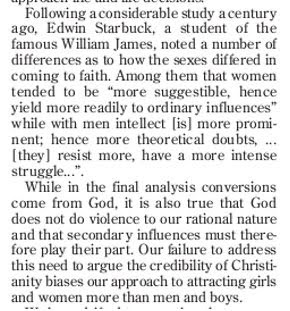
A study of the Apostle Peter
WANTED:
A solid yet imaginative leader for a disparate group of renegrades. The position: to turn them into a force for good which will shake the known world. A learned yet grounded visionary with staying power is needed for this important position who knows the mind of God and can convey it to others…prayerfully, powerfully and accurately. Applications are being received for an immediate start after Easter AD33.
At first glance….Peter wasn’t exactly a great prospect…
It could be said that his CV had some rather obvious “gaps” in it. In Acts 4 he is described as unschooled or uneducated. Consequently he was a fisherman, an ordinary every day profession, nothing special or especially religious. He was prone to break his word and make promises that he didn’t keep. When he cut off the servant’s ear in John 18:10 we see a quick temperedness - an impetuous and impulsive side to his character which showed itself at other points in the gospels. Neither could he always control his tongue, cursing those who accused him of being a follower of Jesus and lying to get out of this potentially dangerous situation. It could therefore be leveled at him that he was also showing cowardice here and when he hid away with the other disciples after Jesus arrest…
As I said, on paper it doesn’t look great…at first glance anyway…
So why was it that Jesus chose him to lead the early church, what was it about his character which made him the right man for the job?
At Pentecost following the resurrection of Christ, there was Peter—boldly preaching the first sermon with his fellow apostles. However, it didn’t stop there. The man who fled for his life when he was identified as a disciple of Jesus was the very same man who, despite the threat of imprisonment, fearlessly proclaimed that Jesus was risen to those who could easily have had him arrested.
When the counsel commanded him not to speak or teach in the name of Jesus, this once reluctant disciple replied, “Whether it is right in the sight of God to listen to you more than to God, you judge. For we cannot but speak the things which we have seen and heard” (cf. Acts 5:29).
So how can we account for this incredible transformation? How did this ordinary Galilean fisherman become a seemingly fearless and notable force for God? How did he go from catching fish to catching men? How did this uneducated man with an unsubmissive personality and an opinionated knack of putting his foot in it, become a rock-like leader—a great preacher and in every sense the dominant figure in the first twelve chapters of Acts?
Very simply, he realized who Jesus really was. He encountered the risen Christ and it was as if everything he had heard and seen and experienced over the three years of Jesus ministry fell into place.
Peter says in his own first epistle, verse 3-4:
“Praise be to the God and Father of our Lord Jesus Christ! In his great mercy he has given us new birth into a living hope through the resurrection of Jesus Christ from the dead, and into an inheritance that can never perish, spoil or fade.”
A new hope, a new birth..a new start...
But the journey to great leader and preacher wasn’t an easy one. Jesus said ‘follow me’ three years earlier. Peter’s impulsive nature was a good thing on that occasion…he did exactly that…he followed him. That trust paid off, that lack of concern for the things which could have dragged him back was an advantage. It set him on the road to a new life which would be fulfilled after Jesus death and resurrection.
So what can we take from this?
1. No matter what your previous background or your present circumstances, God can use you in his service. Like St Peter, our faults can be molded and fashioned into virtues. Weakness can become strength. As Jesus himself promised, “Mustard-seed faith” can be enhanced to move mountains.
2. It takes time to become the person Jesus wants you to become. In 1 Peter 2:2 Peter talks of growing up into salvation. No one is shaped into a mature follower of Christ overnight. Peter certainly wasn’t. In fact, approximately twenty years into his ministry he still had unresolved issues around his attitudes to the Gentiles. Whenever the Jews came to visit, Peter only ate with the Jews. However, when the Jews went home, he changed his practice and ate with Gentile Christians. Eight-to-ten years later it took a vision from heaven to convince him that God, in fact, accepted all men—including Gentiles—into the faith
3. Jesus seeks a willing spirit. Peter’s problem wasn’t his lack of zeal; it was how he employed this quality that often got him into trouble. Sometimes we can see a trait in a negative light, but look at it from another angle and we see it entirely differently. Impulsiveness, outspokenness and quick temperedness when someone you love is threatened can become devotion, determination and passion when it is moulded by the Holy spirit and directed correctly. Once Peter came to terms with the concept that Jesus was risen, his fervency was channeled in a very constructive and powerful way towards leadership and the creation of the early church.
From Peter we can learn that God sees beyond what we are to what we can become. We may look at our lives and think they seem unimpressive or lacking in potential. We may see faults in our characters, or past failures, we may see a lack of understanding or admit that we have been unwilling to follow Christ when things got difficult. But Jesus looks at us and instead of our failings he sees our full potential. I wonder then, what does he see in you?










.JPG)





